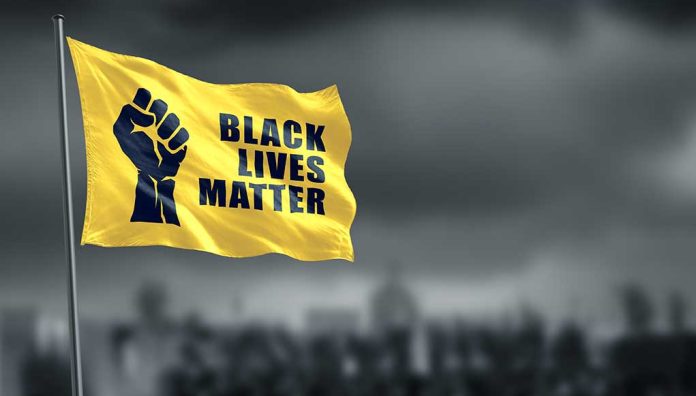
Black Lives Matter Grassroots demands white Americans pay reparations as the movement faces financial struggles and waning public support.
Key Takeaways
- BLM Grassroots issued a Juneteenth press release demanding white Americans provide monetary reparations to support its dwindling finances
- The organization specifically targets “white folks” to contribute financially or through services while citing ongoing benefits from “white-supremacist capitalism”
- A recent Pew Research Center poll indicates most Americans believe the BLM movement has failed to bring meaningful benefits to black communities
- The symbolic “Black Lives Matter Plaza” in Washington DC was dismantled in April despite being previously declared “permanent” by the city’s mayor
BLM Demands White Americans Fund Reparations
As interest and financial support for racial activism dwindles across the country, Black Lives Matter Grassroots has resorted to explicitly demanding monetary reparations from white Americans. In a press release titled “JUNETEENTH IS OUR BLACK JUBILEE,” the organization called on “white folks” to make financial contributions to support its operations. The timing coincides with reduced Juneteenth celebrations nationwide, as funding shortfalls have impacted diversity, equity, and inclusion initiatives that gained prominence following the 2020 protests.
The organization’s demands extend beyond mere financial contributions. White Americans are urged to provide direct services, volunteer labor, or other material support as acts of “reparations.” In their messaging, BLM Grassroots frames these demands as necessary accountability measures, suggesting that white Americans continue to benefit from what they describe as “white-supremacist capitalism” while simultaneously telling white people they should not seek inclusion in Black cultural events like the “cookout.”
Public Support Continues to Fade
The organization’s desperate financial appeals come at a time when public support for the movement is clearly diminishing. According to a Pew Research Center poll referenced in reporting on the issue, most American adults now believe the Black Lives Matter movement has failed to deliver meaningful benefits for black communities since the death of George Floyd. This declining sentiment reflects growing skepticism about the actual impact of racial awareness campaigns that dominated headlines in 2020.
Further evidence of this shift in public support came in April when “Black Lives Matter Plaza” in Washington DC was dismantled. The plaza, which was renamed from Liberty Plaza during the height of racial protests in 2020, had been declared a “permanent” symbol by the city’s mayor. Its removal represents a significant reversal in the movement’s visible presence in the nation’s capital and signals a broader shift away from the symbolic gestures that defined the summer of 2020.
Political Response to BLM’s Continued Presence
Conservative lawmakers have celebrated the removal of divisive BLM symbols from public spaces. The dismantling of Black Lives Matter Plaza in Washington DC was supported by Republican legislators who viewed the installation as unnecessarily polarizing. The plaza had become a contentious symbol during the 2020 campaign season, with many conservatives arguing it represented partisan political messaging rather than unifying national values.
While BLM Grassroots encourages Black Americans to celebrate Juneteenth with traditional activities focusing on food, dance, and music that honor their heritage, the organization’s confrontational approach toward white Americans has raised questions about its actual goals. By simultaneously demanding financial support while explicitly excluding non-Black individuals from cultural celebrations, critics argue the movement has abandoned genuine racial reconciliation in favor of divisive rhetoric that ultimately undermines its stated mission of equality and justice.



